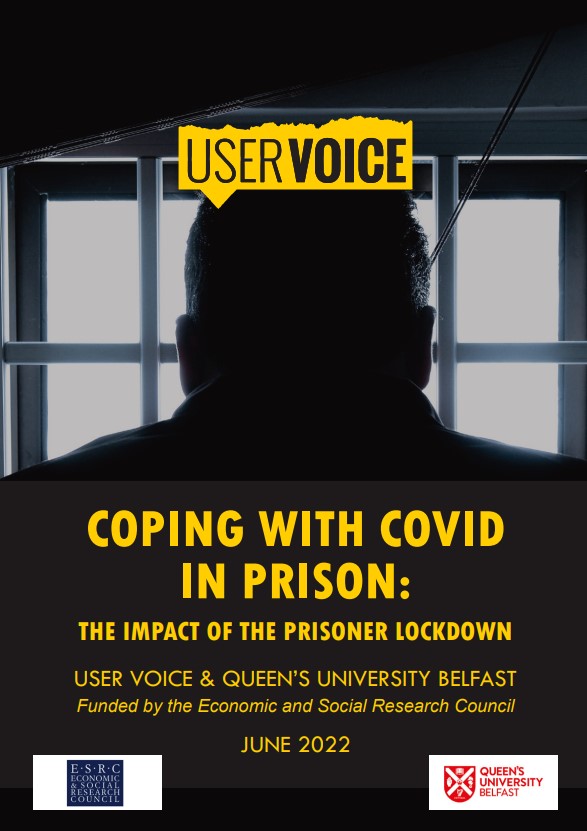INNOVATIVE STUDY FINDS COVID-19 MEASURES LEADING TO SEVERE MENTAL HEALTH CRISIS IN PRISONS
1 in 3 prisoners show symptoms of “severe anxiety disorder” indicating high levels of post-traumatic stress
‘Coping with Covid in Prisons’ research has found Covid-response measures led to periods of prolonged solitary confinement across the prison population, resulting in dramatically increased levels of anxiety and depression.
The study, funded by the Economic and Social Research Council, was a partnership between the ex-offender led charity User Voice and social scientists at the Queen’s University Belfast.
One of the most comprehensive studies of life in prison during the pandemic completed internationally, the project drew on an innovative peer-led methodology, developed by User Voice. Nearly 100 serving prisoners were trained in research methods to survey their peers. Over the 18-month project, they completed over 1,400 surveys with fellow prisoners across 11 prisons, including the women’s estate, young offender institutions, and all categories of prisons.
The unique study found that prolonged isolation and the simultaneous reduction in support services, resulted in widespread deterioration of mental health and the erosion of the rehabilitative function of imprisonment.
Key findings:
- 85% of surveyed prisoners were confined to cells for 23 hours for the majority of the lockdown period.
- 59% of surveyed prisoners had not had a single family visit during the Covid lockdown.
- Standard wellbeing screening tools suggest depression and anxiety scores are almost 5 times higher than the standard for the general population.
- More than 1 out of 3 prisoners were scoring at the level of “severe anxiety disorder” indicating high levels of post-traumatic stress.
- Two thirds of survey respondents said that access to mental health support had worsened, instead of improving, during the lockdown.
- 1 out of 5 respondents thought that violence had reduced in the prisons because of the lockdown.

